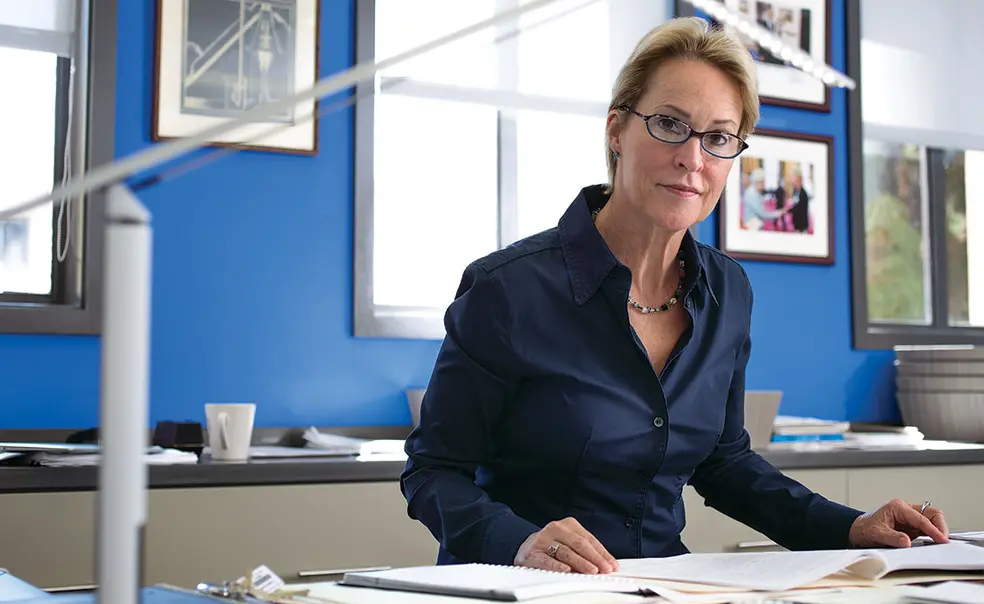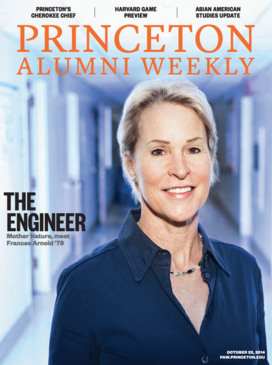Caltech professor Frances Arnold ’79 shared the Nobel Prize in chemistry this year for pioneering the “directed evolution” of new enzymes, using principles of genetic change and selection to develop proteins that could help solve some of today’s greatest challenges. Arnold received half of the $1.01 million prize, with the rest going to George P. Smith of the University of Missouri, Columbia, and Gregory P. Winter of the MRC Laboratory of Molecular Biology in Cambridge, England.
The three laureates “have taken control of evolution and used it for purposes that bring the greatest benefit to humankind,” the Nobel citation says. In 1993, Arnold — the fifth woman to win the Nobel in chemistry — conducted the first directed evolution of enzymes; since then she has refined methods that are now used routinely in biochemistry. Arnold’s enzymes have led to more environmentally friendly manufacturing of chemical substances, including pharmaceuticals, and the production of renewable fuels. As Princeton chemistry professor David MacMillan told PAW in 2014, Arnold “hijacks biological enzymes and makes them do her bidding.”
At a press conference at CalTech Oct. 3, Arnold said she was inspired by the “fearlessness” of fellow CalTech scientists who aim to solve “big, hard, hairy” problems. “That always pushed me to do my best,” she said, “... to really choose the things that nobody knew how to do.” She predicted that there would be a “steady stream” of women awarded the Nobel Prize in chemistry.
Arnold, who received her bachelor’s degree in mechanical and aerospace engineering, is the first female Princeton alum to win a Nobel. Among many honors, she received the National Medal of Technology and Innovation from President Barack Obama.
In her conversation with PAW in 2014, she addressed two challenges inherent in directed evolution. One was a question of capacity: Reviewing the results of experiments and using them to devise mutation takes time. The larger challenge is conceptual, she said: Directed evolution requires great human imagination.
“We only have the sequence nature gives us to start with,” she explained. “Instead of studying what biology has already made, we have to imagine what biology could make. You can say, ‘Oh, I want a cure for cancer,’ but that doesn’t tell you what evolutionary pathway will take you from here to there. What are the intermediate steps?”













No responses yet